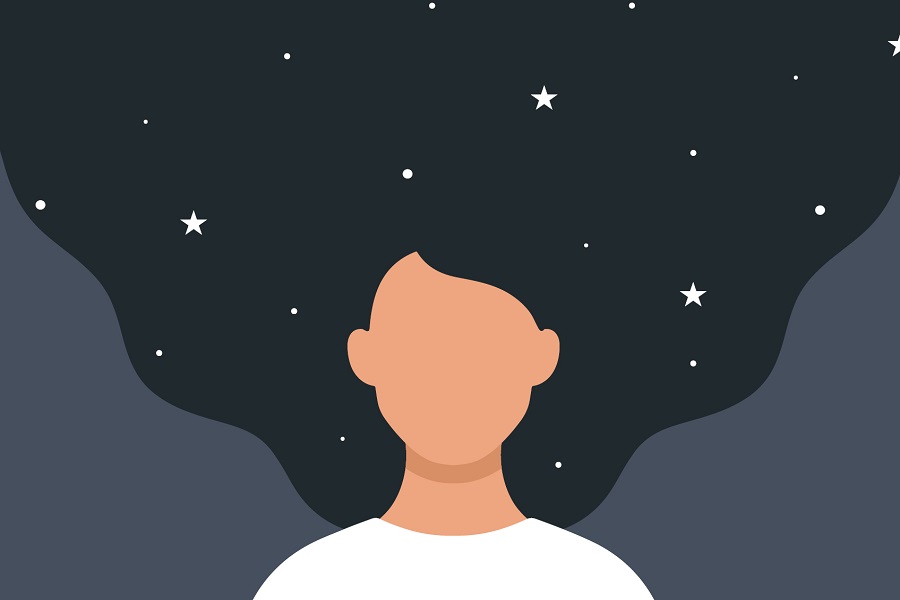
Published :
Updated :

Hold fast to dreams
For if dreams die
Life is a broken-winged bird
That cannot fly.
Dreams can significantly impact our lives, influencing our emotions, thoughts, and behaviours. Here American poet Langston Hughes uses the powerful metaphor of a broken-winged bird to illustrate the sense of loss and constraint that occurs when dreams are abandoned or fade away. Dreams often occur during sleep, but their effects can extend well beyond slumber.
Good sleep has been linked to better cognitive function and emotional health, and studies have additionally associated dreams with effective thinking, memory, and emotional processing.
According to the National Library of Medicine, dreams are images, thoughts, or feelings during sleep. Visual imagery is the most common. And National Institute of Neurological Disorders and Stroke (NINDS) says dreams can involve all senses. Some people dream in colour, while others dream in black and white.
Most people dream for two hours on average each night. Anyone can dream anywhere from 3 to 6 times each night. Any stage of sleep can induce dreams, but the rapid eye movement (REM) stage is when dreams are most frequent and powerful.
Dreams that happen during REM sleep tend to be more intense, fantastical, and strange, even if they contain parts of real life. Non-REM dreams, on the other hand, tend to have clearer thoughts or memories tied to a specific time and place.
Dreams can take on a wide variety of shapes and forms. Lucid dreams are when a person dreams but is also conscious that they are dreaming. This awareness allows the dreamer to make decisions inside the dream. The dream content of a vivid dream is realistic or crystal clear. The same scene plays out in several different dreams spread over time, and this is what we refer to as a recurring dream.
The substance of a bad dream is annoying or upsetting to the dreamer. A nightmare is a bad dream that causes a person to wake up from sleep. However, the widespread usage of the term 'nightmare' can encompass any dream that seems frightening, terrifying, or annoying. While the occasional nightmare is to be expected and typically harmless, chronic nightmares can disrupt sleep, leading to daytime cognitive and emotional impairment.
Experts aren't sure why we dream. But evidence suggests that dreaming supports several psychological and physiological functions, such as information processing, cognitive development, emotional regulation, and neurobiological processes.
Dreams help us to process and integrate information from our daily experiences. The brain organises thoughts, consolidates memories, and creates connections between previous knowledge. At the same time, we sleep by organising and storing information, helping us make sense of our experiences, and improving our capacity for learning and problem-solving.
Dreams can also contribute to the processing of emotions. In the case of children, they help develop abstract thinking, imagination, creativity, and problem-solving abilities. Dreams can provide us access to our unconscious desires, worries, and thoughts that may not be readily accessible when awake. It is widely acknowledged that dreams can ignite creativity and stimulate innovative ideas. Dreams have been the source of numerous significant scientific discoveries, artistic creations, and problem-solving breakthroughs.
Dreaming is also closely linked to mental health and influences our emotions. These emotions can affect our mood, behaviour and interactions with others. Dreams play a vital role in memory consolidation and learning processes. They can help enhance new information, support neural connections, and enhance the retention of information.
Now how can one remember dreams? You can forget a dream in the blink of an eye. So the first thing you do after waking up is close your eyes and try to replay the dream in your mind. Try to avoid the alarm clock.
Some irregular aspects of dreaming may interfere with sleep or overall mental health. For example, having vivid dreams right after falling asleep could indicate narcolepsy, a sleep disorder. It makes people drowsy during the day. People with narcolepsy find it hard to stay awake for long periods. Not dreaming may indicate you are not getting enough REM sleep, which may increase drowsiness, depression, and health problems.
The impact of dreams on daily life varies from person to person. Regardless, dreams remain a fascinating aspect of human consciousness and provide insights into the complexities of the mind and the connections it makes with the reality we experience while awake.
firuz.nawer@gmail.com


 For all latest news, follow The Financial Express Google News channel.
For all latest news, follow The Financial Express Google News channel.